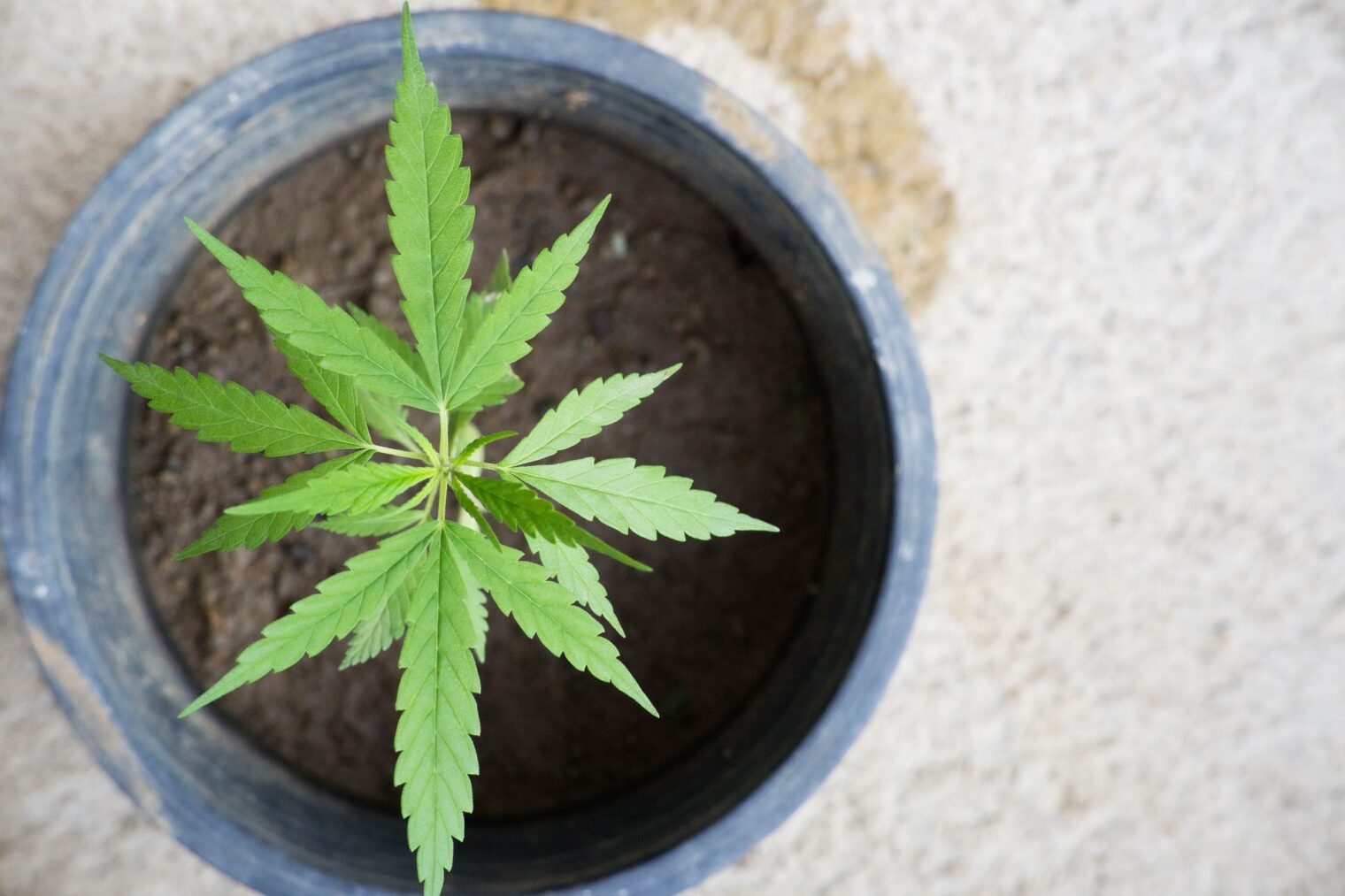Factors Affecting the Quality of Thai Cannabis
Let’s get down to the nitty-gritty, folks! The quality of Thai cannabis is influenced by a myriad of factors, from the genetics of the plant to the cultivation techniques and the post-harvest processing. I always think it’s important to know what you are putting in your body be it food, drink or ganja.
Let’s take a look at all the factors that affect the quality of Thai cannabis and the types of strains you can find in a Bangkok weed store. This blog is for individual smokers or those seeking Thailand cannabis wholesale options now weed is legal in Thailand.
Thai Cannabis Quality Factors
The genetic makeup of the cannabis plant plays a crucial role in determining its quality. Thailand is home to some unique landrace strains that have evolved over centuries to adapt to the local climate and soil. These indigenous strains, such as the ‘Thai Stick’ and ‘Chocolate Thai,’ have unique characteristics that make them highly sought after by cannabis connoisseurs.
However, years of prohibition and unregulated cultivation have led to the degradation of these strains. With the legalization of medical marijuana, there is a renewed focus on preserving and improving the genetic quality of Thai cannabis. Researchers and cultivators are working together to selectively breed and develop new strains with enhanced medical properties.
Cultivation Techniques:
The way cannabis is grown has a significant impact on its quality. Factors such as the soil, climate, and growing techniques all play a role. Thailand has a tropical climate, with high temperatures and humidity, which is conducive to cannabis cultivation. However, it also poses challenges such as mold and pest infestation. Cultivators in Thailand are experimenting with different cultivation techniques, such as indoor cultivation, greenhouses, and hydroponics, to optimize the growing conditions and improve the quality of the cannabis produced. There is also a push towards organic cultivation, which involves using natural fertilizers and pest control methods to ensure the purity and safety of the cannabis produced.
Post-Harvest Processing:
The way cannabis is processed after harvest also affects its quality. This includes the drying, curing, and storage of the cannabis. If not done properly, it can lead to the degradation of cannabinoids and terpenes, which are the active compounds in cannabis. In Thailand, there is a tradition of curing cannabis by fermenting it, which is believed to enhance its potency and flavor. However, this method also increases the risk of contamination. With the legalization of medical marijuana, there are stricter regulations in place for the post-harvest processing of cannabis to ensure its quality and safety.
Regulation and Quality Control:
Last but not least, the regulatory framework and quality control measures in place also play a crucial role in determining the quality of cannabis. In Thailand, the cultivation, production, and distribution of medical cannabis are strictly regulated by the government. The Government Pharmaceutical Organization (GPO) oversees the production and distribution of medical cannabis, and there are strict quality control measures in place to ensure the safety and efficacy of the cannabis produced.
In summary, the quality of Thai cannabis is influenced by a combination of genetic, environmental, and regulatory factors. While there are challenges to be addressed, there is a concerted effort by all stakeholders to improve the quality of Thai cannabis and bring it up to international standards. With the right approach, Thai cannabis has the potential to reclaim its former glory and be recognized as some of the best in the world. Now, let’s see how Thai cannabis stacks up against other regions.
Comparing Thai Cannabis with Other Regions
Alright, time for a little showdown! Thailand is certainly not the only player in the cannabis game. With the global trend towards legalization, many regions around the world are stepping up their cannabis game. Let’s see how Thai cannabis compares to some of the other heavyweights in the cannabis world.
North America: North America, particularly the United States and Canada, are currently leading the charge in the cannabis industry. Both countries have legalized cannabis for medical and recreational use in many states and provinces, and there is a thriving legal market for cannabis products. North American cannabis is known for its high quality, with strict regulations and quality control measures in place. There is also a wide variety of strains available, thanks to a robust breeding and cultivation scene. Thai cannabis, while improving, still has a way to go to match the quality and variety of North American cannabis.
European Cannabis:
Europe, particularly the Netherlands and Spain, is another major player in the cannabis world. The Netherlands has long been a pioneer in cannabis legalization, with a well-established legal market for cannabis products. Spain, on the other hand, has a unique model, with cannabis social clubs where members can grow and consume cannabis. European cannabis is known for its high quality and innovative strains. Thailand, with its focus on medical cannabis and research-driven approach, has the potential to develop unique and high-quality strains that can compete with European cannabis.
Latin America:
Latin America, particularly countries like Colombia and Uruguay, is an emerging player in the cannabis industry. Both countries have legalized cannabis for medical and recreational use and are actively promoting the cultivation and export of cannabis. The climate in Latin America is conducive to cannabis cultivation, and there is a growing interest in developing indigenous strains with unique characteristics. Thai cannabis, with its own indigenous strains and tropical climate, has similarities with Latin American cannabis and can learn from their experiences to improve its own quality and competitiveness.
African Cannabis:
Africa, particularly countries like Lesotho and South Africa, is another emerging player in the cannabis industry. Both countries have legalized cannabis for medical use, and there is a growing interest in developing the cannabis sector. African cannabis is known for its unique landrace strains, which have been cultivated for generations by local communities. Thai cannabis, with its own rich history and indigenous strains, can find common ground with African cannabis and collaborate to improve the quality and diversity of their cannabis offerings.
The Future of Cannabis Quality in Thailand
Time to gaze into our crystal ball, folks! While we can’t predict the future with absolute certainty, we can certainly make some educated guesses based on current trends and developments. So, what does the future hold for cannabis quality in Thailand? You can also find out the social implications of Thailand cannabis laws and cannabis leglislation in Thailand.
Improvement in Genetic Quality:
There is a renewed focus on preserving and improving the genetic quality of Thai cannabis. Researchers and cultivators are working together to selectively breed and develop new strains with enhanced medical properties. With continued investment in research and development, we can expect to see the development of new and innovative strains that leverage the unique characteristics of Thai landraces.
Adoption of Advanced Cultivation Techniques:
As the cannabis industry matures, there is a growing interest in adopting advanced cultivation techniques to optimize the growing conditions and improve the quality of the cannabis produced. Techniques such as indoor cultivation, hydroponics, and organic farming are gaining popularity among Thai cultivators. With the adoption of these advanced techniques, we can expect to see an improvement in the quality and consistency of Thai cannabis.
Stricter Quality Control Measures:
With the legalization of medical marijuana, there are stricter regulations in place for the cultivation, production, and distribution of cannabis. The Government Pharmaceutical Organization (GPO) oversees the production and distribution of medical cannabis, and there are strict quality control measures in place to ensure the safety and efficacy of the cannabis produced. These measures are expected to become even more stringent in the future, which will help improve the quality and safety of Thai cannabis.
Development of Cannabis-Based Medicines:
There is a growing interest in developing cannabis-based medicines and wellness products in Thailand. Researchers are actively studying the medical properties of cannabis, and there is a push to develop new and innovative cannabis-based medicines. With continued research and development, we can expect to see the development of new cannabis-based medicines that leverage the unique properties of Thai cannabis.
Growth of Thai Cannabis Tourism:
The Thai government has expressed its intention to develop Thailand as a hub for cannabis wellness tourism. Special clinics offering cannabis-based treatments and wellness products are being set up in major tourist destinations. As the quality and variety of cannabis-based treatments and wellness products improve, we can expect to see a growth in cannabis tourism in Thailand.
While the future looks promising, there are still challenges that need to be addressed. The legal framework, while progressive, is still quite strict, and there are calls for further liberalization. There is also a need for more public awareness and education about the benefits and safe use of medical cannabis. Moreover, there are concerns about the affordability and accessibility of medical cannabis for the local population. Addressing these challenges will be key to ensuring the long-term success of the cannabis industry in Thailand.
Is the quality of weed in Thailand good or second rate?
Although the quality of weed in Thailand is good, the answer, my friends, is a bit more nuanced. While the quality of Thai cannabis suffered during the years of prohibition, there has been a concerted effort to improve its quality since the legalization of medical marijuana. The Thai government, researchers, and cultivators are working hand in hand to preserve and improve the genetic quality of Thai cannabis, adopt advanced cultivation techniques, implement stricter quality control measures, and develop cannabis-based medicines and wellness products.
While there is still work to be done to bring Thai cannabis up to international standards, there is a lot of positive momentum. The renewed focus on research and development, the push towards organic cultivation, and the development of cannabis-based medicines and wellness products are all steps in the right direction. Moreover, the government’s intention to develop Thailand as a hub for cannabis wellness tourism bodes well for the future.


